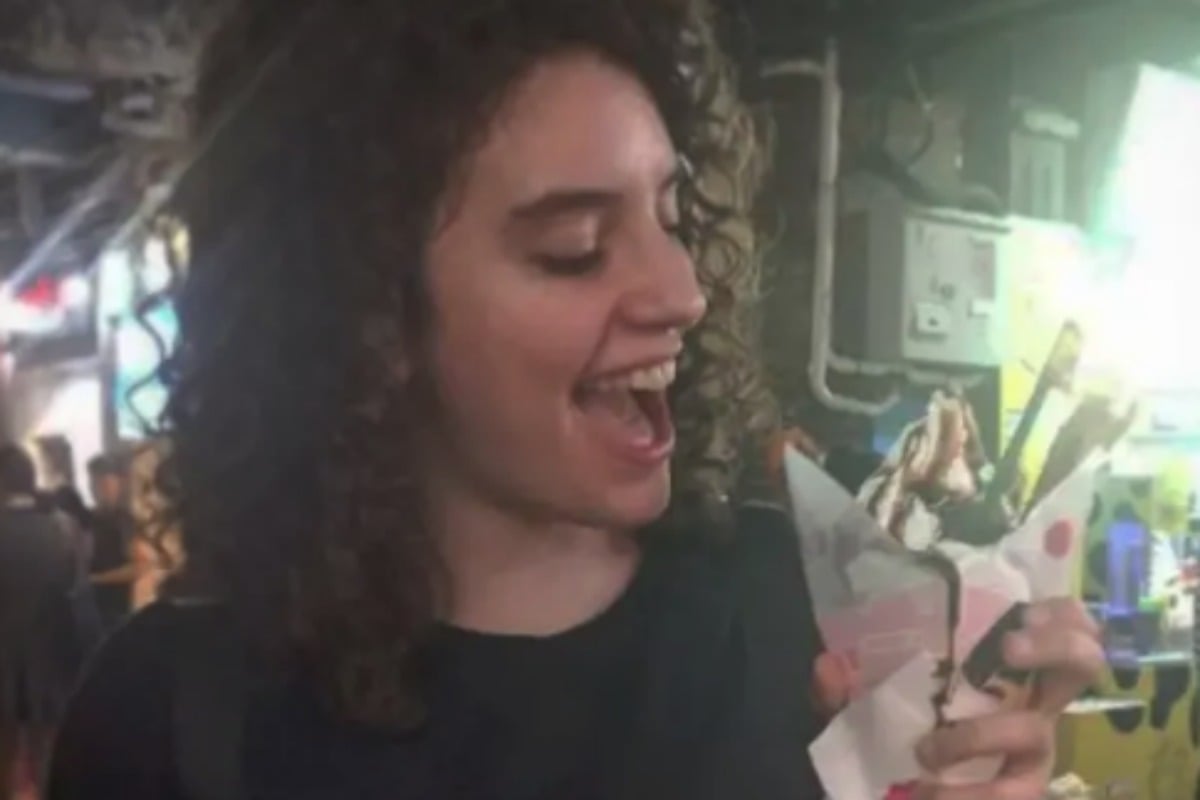
Since the publication of this article a 20-year-old man has been arrested over the murder of Aiia Masarwe.
Aiia Masarwe, a 21-year-old international student, was on the phone to her sister as she walked home from The Comics Lounge on Tuesday evening.
It was a warm night, right in the middle of the Australian summer.
Friends dropped her at the 86 tram, police understand, after attending the show in North Melbourne.
She got off on the corner of Plenty Road and Main Drive, and began the short walk home.
The familiar voice of her sister likely made her feel safer, navigating the dark streets in a foreign country.
But as they spoke, suddenly their conversation was interrupted by another voice. Or voices. The phone fell, and Aiia was gone.
Her sister tried to call back. There was no answer.
We know that the student of La Trobe University, who had been in the country for six months, was likely murdered in the moments that followed. Her sister sat powerlessly, more than 13,000 kilometres away.
Neighbours reported screaming in the early hours of Wednesday morning.
But it wasn’t the voice of Aiia.
It was the sound of the woman who found her.
The student, who was less than a kilometre from her home, was partially dressed, with her sandals, phone, a book and her water bottle, scattered around her.

Top Comments
Correct me if I'm wrong, but aren't New Zealand and Australia two separate countries? It's not a case where the PM issued an apology in one case, but not in the other; it's a case where the PM of one country felt that an apology was warranted, but the PM of a neighbouring country did not feel the same way.
The author of this badly written piece has gone back over 6 months and listed a large number of murders, taken from two countries. Some of these are by rapists who attacked complete strangers; others are the result of domestic or partner violence; still others were apparently robberies gone wrong, or murders committed in the furtherance of robberies.
Were no men murdered in Australia and/or New Zealand during those seven months?
Yes, it sucks that there is still violent crime in the world. Yes, it sucks when the victim is some 20-something female university student who has a bright and promising future.
But for some reason, we're expected to believe that all these crimes
should be blamed on the people and governments of Australia and New
Zealand, and that if I were a better person, that would magically translate into a country with no violent crime. That's ridiculous.
I think the suggestion is that we as a society create the murderers. Not you or me in particular but abuse, neglect, etc creates a person that would murder. The article is about violence against women, not against men, another article may be about crime and murder but not this one...I think that the young woman was a visitor to our country like the backpacker in NZ is the reason for an apology.
Let’s put a night curfew on men so they really understand what it’s like being a woman, relegated indoors after dark because of their violence. Then all the good men, which is luckily most of them, will be more motivated to do something about men’s violence. There are more men than women in important decision-making roles in this country. They should be doing more.
Scott Morrison, we need more prisons and more courts with more judiciary staff to put these violent men there. The police need more help keeping these animals off the street. This has been needed for too long. Women are dying. Act on this now Scott Morrison.
Law enforcement is a state, not a federal issue. Daniel Andrews has dropped the ball, considering it was in Melbourne that 3 women have recently been raped and murdered on his watch.
Didn't realise that violence against women happened in Melbourne only. How about all governments within Australia provide more prison beds and court funding then? Once again Susie, a constructive contributor to arguments affecting women. Hope your liberal party membership fees aren't too high this year.
Dan is more concerned about "diversity" and activism than safety.
About 80% of the murder victims in Australia every year are men. Males are usually the perpetrator and the victim. Locking all men up doesnt sound like a very good idea to me.